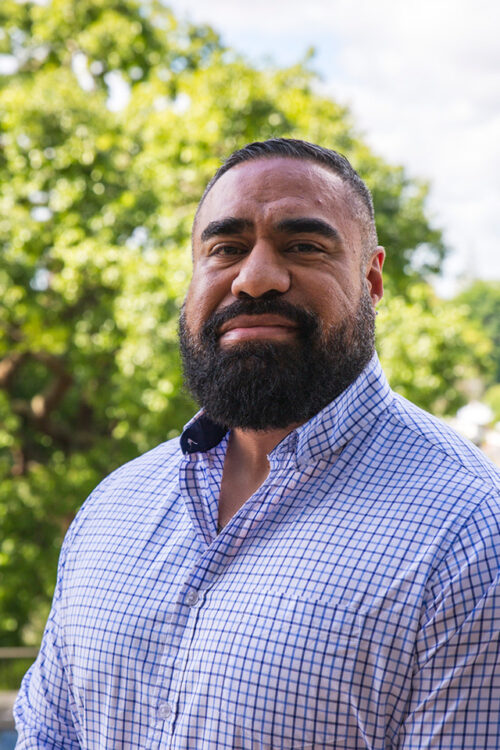 Two years later, they bought Charlton Real Estate with Tiri Raumati – Greenhalgh and merged the two companies.
Two years later, they bought Charlton Real Estate with Tiri Raumati – Greenhalgh and merged the two companies.
In their first year alone, Fred landed 150 portfolios and the business was a recipient for industry awards on a regional and national level. These days, he works mainly on procurement and securing new opportunities for the business, but his entry point into the industry after five years at Work and Income NZ was a mixture of transferable skills and a well-placed family contact.
Fred says that he has worked in what he calls the ‘solutions-based’ industry for 16 years. From working at a gym, to becoming a Work and Income NZ case manager, through to working in real estate, Fred fell in love with demonstrating leadership and supporting Māori and Pacific peoples he engaged with in those spaces.
“We supplied the first emergency housing to residential under private rentals and we ran that for a year. That was amazing as we designed an outcome-based solution by placing some of these families living in hotels or in our properties into long term stable accommodation – we saw a niche there for helping our people as well.”
Like many of us who walk between cultural worlds, Fred conveys the duality of someone who has a wealth of experiences that shape his vision of success. Fred, who is of Fijian and Tongan descent, was raised in state housing by a solo mum. He brings this perspective to ways he can do things differently in his industry. “To me this is the ideal job for solo parents and parents. You come into your role, you’re in at 9am, you’re out before 3pm, you have your appointments.”
Promoting more flexible working options would be a real opportunity for solo parents in real estate. Charlton Real Estate also does ‘moon days’ – one day a month for his staff to take off and replenish themselves. On a weekly basis, they come in three days a week and the other two are remote days.
Fred prides himself on being a straight talker, maintaining that he speaks to everyone with consistent plain language as a hallmark of his genuine presence. “I don’t mix what I say. Because as soon as you move away from that, you move away from your authenticity and then you just become unauthentic.”
In the same vein, he is real about the racism that pervaded his career trajectory. Even as he and his team gained slew of credentials and award nominations, Fred had to grapple with assumptions about who he represented at awards ceremonies – one of many instances where Fred felt Pacific people in his industry were hindered by harmful stereotypes:
“In Real Estate there is an event every year to celebrate everyone who’s done really fantastic stuff. The year that I was with Crockers – myself and some others who had done exceptionally during the year were asked to be part of it. And yeah so, we were out at this black-tie event and we get in and then go grab a drink. And as I’m standing in line, the guy from behind the bar goes “can you go take this to Table 4?”
Fred emphasises the importance of cultural identity and capability as part of what makes a business run well in Aotearoa. “We have to highlight the fact that (Māori are) tangata whenua. For us it’s the governance around what we do, it’s really important. We did te Tiriti o Waitangi training – we wanted it to be part of what we do here. We highlight other cultures, you know, through Tongan language week, Cook Island Language week, Matariki, Chinese New Year. We highlight all of that because this is not our land.”
Innovating ways of operating in business that value people has also resulted in the business offering co-ownership with property managers. “So, you buy a smaller portfolio and you become its owner. We take a percentage for running the back-office stuff but you own that asset. You know, it’s cool. Because no one has $1,000,000 to go and buy a company.”
When speaking about opportunities in his industry, Fred sees great value in coaching, confident that it elevates people from ‘working in the business’ to contributing to strategic decision making about the business. Teaching tailored leadership skills and coaching for Māori and Pacific employees would be valuable for empowering them to become entrepreneurs themselves.